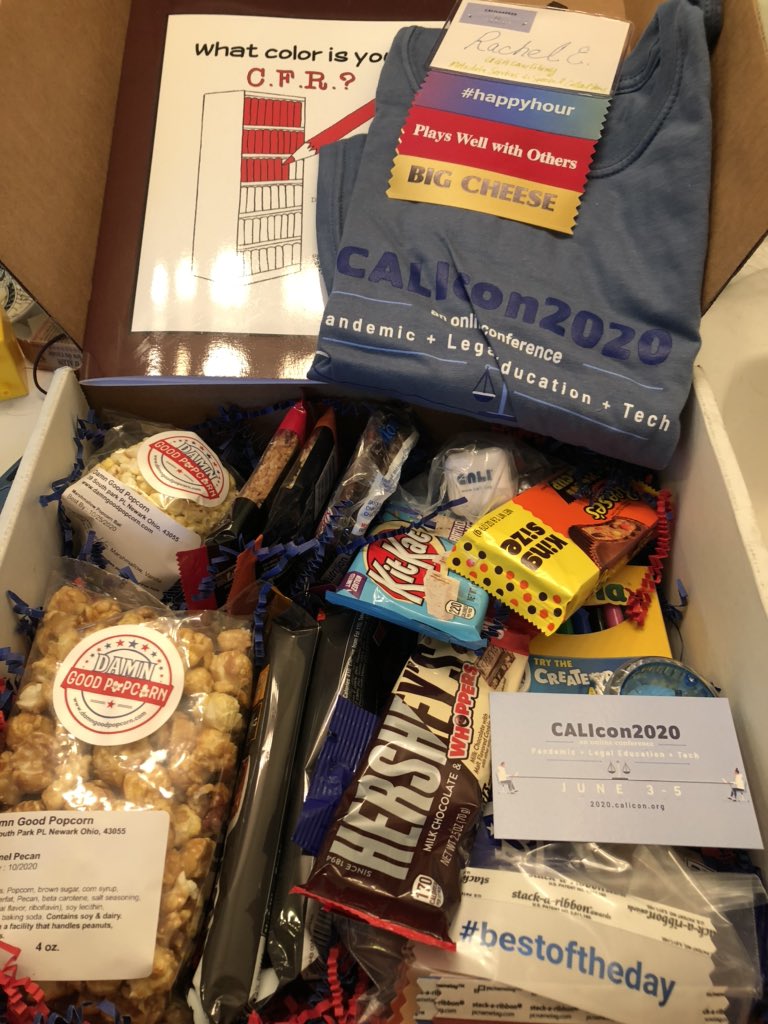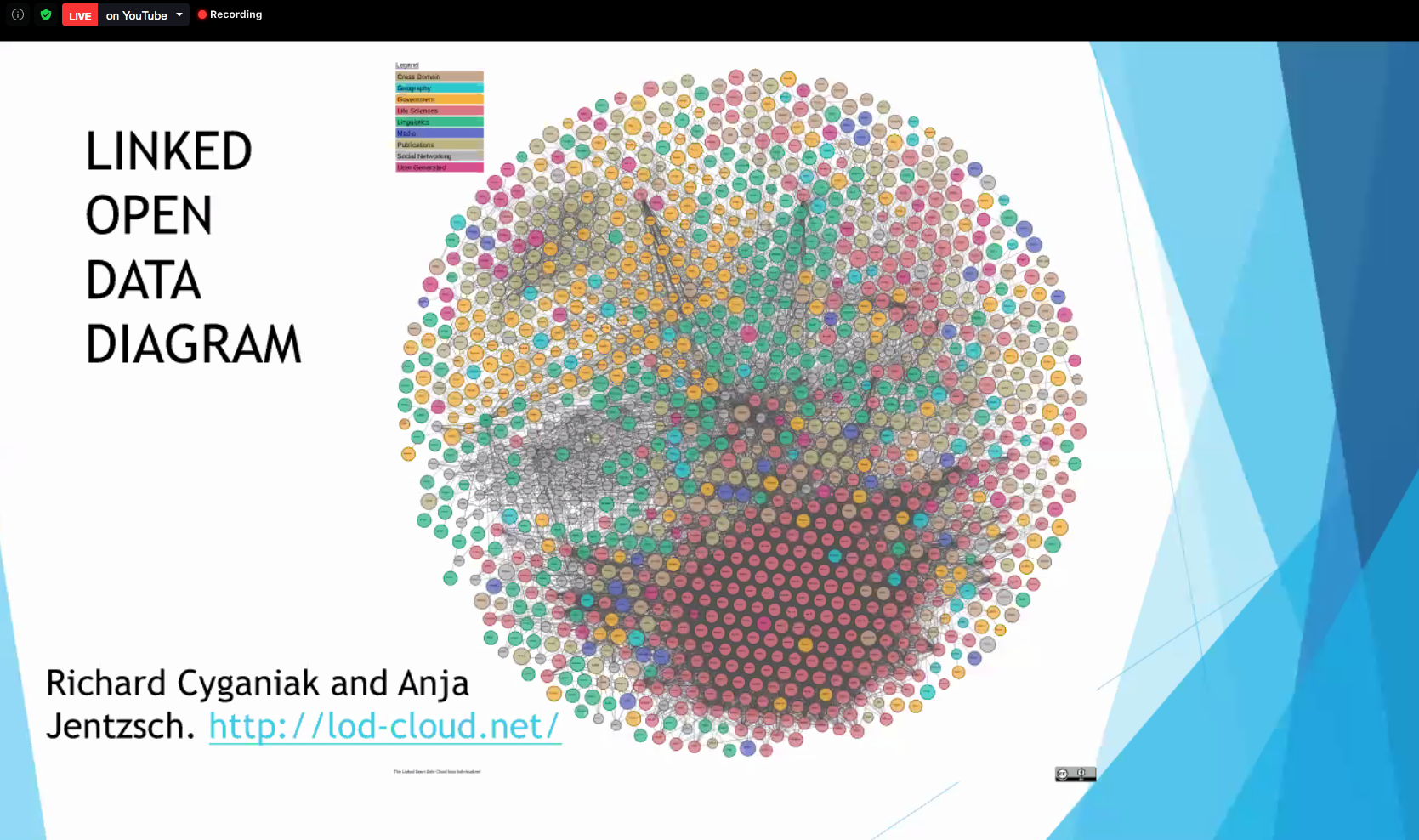The increase of wonderful, FREE programming being delivered virtually right now and available to audiences around the world is truly amazing. It can be overwhelming to sift through the options (especially if your inbox has exponentially exploded as mine has over the past 3 months). Take a trip back in time with me as I share below my favorite sessions that I feel offered the most valuable content to those of us in technical services positions.
- BEST OF JUNE (so far): NASIG 2020
There are SO many great sessions slated for NASIG 2020 (which is happening as I type this blog post)! Honestly, my excitement around this virtual conference is what spurred me to go ahead and pen this post in the hopes that more people will read this and join in the NASIG sessions still to be delivered today and that will be available as recordings following each session. New to NASIG? I am too! This is my first year attending, so here's the background: Established in 1985, NASIG (formerly the North American Serials Interest
Group, Inc.) is an independent organization that promotes
communication, information, and continuing education about serials,
electronic resources, and the broader issues of scholarly communication. The schedule for this year literally touches on every single one of those areas, all of which fall under or intertwine with technical services positions in one way or another.

So far the highlight from yesterday included a session on
Rapid Contextual Design to create workflows between library departments that actually work. Today my favorite so far has been on the
Accessibility of Repositories session. It shared excellent tips for doing accessibility audits of your site
(I can see this applying to more than just repositories!) and provided
resources including tools to create a guide of best practices. A major
bonus for this virtual conference has been it is available in BOTH Zoom
(where you can interact) and is simultaneously live streaming in YouTube
(I'm looking at you fellow multi-taskers, this won't necessarily negate
your other zoom meetings AND for me is keeping my computer from
overloading which Zoom tends to do)!
Visit the YouTube live streams and recorded sessions. You can also
contribute to the discussion forum at any time during the conference, and
view the schedule online for info on specific times for the remaining sessions.
Myself and two other TS-SIS members have divided up the NASIG sessions
to offer more complete coverage for a future TSLL issue - so if you cannot make it to any of these sessions, fear not! Just keep an eye
out for NASIG reviews in the Conference Round-Up section this fall!
- BEST OF MAY: GLA TS-IG Linked Data Workshop
This one is a bit of a shameless-self-promotion plug since I was involved in facilitating this session. However, it really was so excellent and I was amazed at the attendance from across the globe that I would regret not re-sharing the recording for those that missed it. Delivered on May 19th live with the help of
Georgia Public Libraries, the presentation about linked data was the first of several forthcoming virtual workshops from my state library association's technical services interest group. The speaker
Robin
Fay is a Metadata and Technology Professional who has worked on
metadata & digital initiatives for a variety of institutions and
organizations on cataloging and institutional repository projects.
Robin answered many big picture questions surrounding linked data initiatives, like "will the promise of linked data
actually save us time? How will catalogers and machines work together to
streamline recording of data and authority maintenance work, allowing
catalogers and metadata practitioners to focus more on data stewardship
and less on being data scribes? Will Real World Objects (RWOs) and
linked data help bridge the gap between traditional cataloging and the
larger semantic web communities of practice, ensuring that library
metadata supports our users' search behaviors, those FRBR User Tasks? Or
will it just provide more maintenance work down the road?" She also shared wonderful examples (fans of Prince will LOVE this), and provided case studies and other resources. You can now
watch the video recording, and Robin has made available
slides and other items in a folder for anyone interested in following along.
- BEST FOR HOTTEST TOPIC: CS-SIS Controlled Digital Lending Panels
What could be more timely right now with the talk of reopening, course reserves and more in our libraries than Controlled Digital Lending (CDL)? Possibly the most controversial and therefore sexiest topic circulating our professional development lists right now is CDL. Fellow AALL members (many of which are also TS and OBS members) from the
Computing Services SIS have organized two panels of experts discussing very candidly the technology side and the copyright side of CDL. Many libraries are looking into solutions for providing materials using everything from institutional-level shared folders (in either OneDrive or GSuite) to the
Internet Archive's Open Library for managing, and restricting read-only time-limited access to digitized samples of varying lengths of physical holdings. This already hot topic is now literally on fire given the
suit filed by multiple publishers against IA just last week. No matter which side of the fence you may be on related to CDL, one thing is certain that these sessions were very informative with engaging discussions. If you are on the fence, or just curious about what others are doing or not doing for course reserves and other high-demand items in the face of reopening this fall as a proactive measure against COVID, give both of these a listen: the
Copyright Panel recording and the
Technology Panel recording.
- BEST FOR EXPERIENCE: CALICon 2020

Wow what a conference experience! Computer Assisted Legal Instruction's annual conference quickly transformed itself overnight into a completely free, fully fledged virtual schedule presented entirely in Zoom. Most sessions were live, and even those that were pre-recorded were still delivered synchronously in Zoom with engaging Q & A throughout, interesting and even hilarious chats, and a lively discussion forum for each presentation. I was highly impressed with the clusters that sessions were collected into, and the theme of the conference was even adjusted to specifically focus on pandemic situations. There was even an entire session delivered by a robotic-sounding adorable cat (
Everything Important I Learned About Zoom Teaching From My Cat)! By far though the absolute best aspects of CALICon this year were the goodies box (seriously a glow in the dark yoyo, TONS of snacks, and the full create your own name-badge experience were ALL inside the box!) and the closing happy hour raffle (I didn't win anything this year - but it was still so much fun). They have really set the bar very high for all future virtual conferences, content-wise and experience-wise. As always, CALI is amazing about putting the v
ideo recordings for all sessions on YouTube following the live broadcasts, and their
discussion forum is still available which includes links to slides, comments from attendees, and presentation descriptions.
To get into the discussion forum topics and threads use you cali.org username and password.
- BEST ON-GOING WEBINARS: MarcEdit Multi-Part YouTube Sessions
In my last post I shared the Shelter-In-Place videos that MarcEdit developer Terry Reese has made
available for free in a YouTube playlist.
So far there are 8 parts split into 11 different video segments. A few
are over the hour mark in length, but the content is well worth it.
Terry Reese
is the head
of digital initiatives at the Ohio State University Libraries. Over the
past seventeen years, his research interests have centered on the
changing nature of library metadata and the ways in which this data can
be reused and transformed in different contexts. If you're reading this
and saying (like I did in the not too distant past) who is this Terry
fellow and what is the big deal with MarcEdit? I encourage you to visit his webpage and discover the amazing utility that is freely available online.








 Wow what a conference experience! Computer Assisted Legal Instruction's annual conference quickly transformed itself overnight into a completely free, fully fledged virtual schedule presented entirely in Zoom. Most sessions were live, and even those that were pre-recorded were still delivered synchronously in Zoom with engaging Q & A throughout, interesting and even hilarious chats, and a lively discussion forum for each presentation. I was highly impressed with the clusters that sessions were collected into, and the theme of the conference was even adjusted to specifically focus on pandemic situations. There was even an entire session delivered by a robotic-sounding adorable cat (
Wow what a conference experience! Computer Assisted Legal Instruction's annual conference quickly transformed itself overnight into a completely free, fully fledged virtual schedule presented entirely in Zoom. Most sessions were live, and even those that were pre-recorded were still delivered synchronously in Zoom with engaging Q & A throughout, interesting and even hilarious chats, and a lively discussion forum for each presentation. I was highly impressed with the clusters that sessions were collected into, and the theme of the conference was even adjusted to specifically focus on pandemic situations. There was even an entire session delivered by a robotic-sounding adorable cat (






